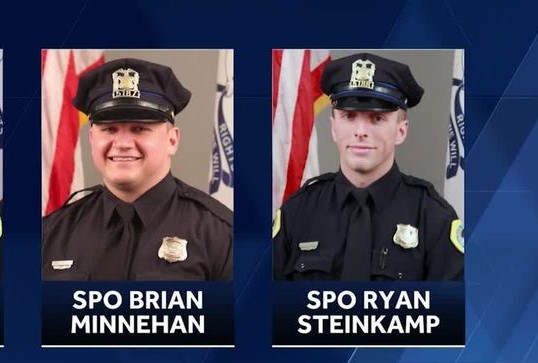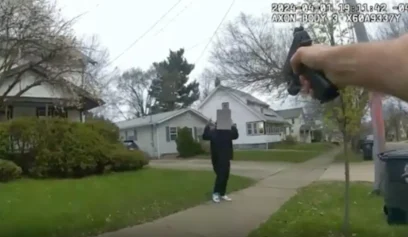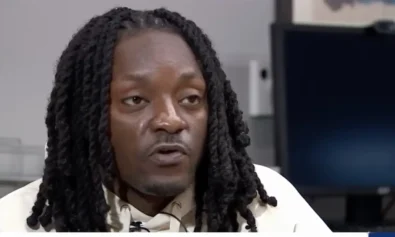Two Iowa police officers will have to face a lawsuit alleging they wrongly handcuffed a Black man during a 2018 traffic stop, a federal appellate court ruled Tuesday, Sept. 21.
The 8th U.S. Circuit Court of Appeals denied qualified immunity for Des Moines officers Brian Minnehan and Ryan Steinkamp, reviving a lawsuit brought by DeJuan Haynes.

Haynes sued Minnehan and Steinkamp, as well as the city and Police Chief Dana Wingert after he was pulled over and handcuffed in July 2018 after he was suspected of being involved in a drug deal.
“We have repeatedly equated a person’s suspected drug-deal involvement with a reasonable belief that the same person may be armed and dangerous,” the court wrote.
“But as new information flows in, a reasonable belief can dissolve into an unreasonable one. … This case is an example of how.”
According to the suit, filed on Sept, 21, Minnehan and Steinkamp were assigned to the Summer Enforcement Team, “a proactive policing initiative meant to reduce criminal activity in the areas of the City.”
As a part of the team, officers would focus on suspicious activity that might involved illegal drugs.
The officers were in the neighborhood where Haynes attended church on July 26, 2018, when they saw the 31-year-old engage in a brief interaction with another person, during which something was exchanged.
Officers then began to trail Haynes in his Volkswagen. Haynes pulled over and Minnehan and Steinkamp approached the vehicle and asked what he was doing.
Haynes replied, saying he was giving away some change. He then searched for his driver’s license but could not find it and provided his insurance card, a Visa card, a Costco card with his name and picture, as well as his address and social security number.
“Aside from the suspected drug deal, the officers would later testify that nothing about Haynes’s behavior led them to see him as a safety risk or uncooperative. Both officers looked into the car. Neither saw anything drug-related nor smelled marijuana. And neither saw weapons,” the lawsuit says.
Haynes was asked to step out of the vehicle then detained and handcuffed because he did not have a license.
Haynes said, “The car and me being over here don’t match.” Minnehan responded that “it’s a nice car for the area,” the suit says.
Haynes alleges he was humiliated when officers handcuffed him then shoved their hands down his pants in search of illegal drugs, patted down the area between his legs and the front of his pants, then left his pants unzipped as he stood in full view of the road.
“You pull me over for no reason, handcuff me, push your hands down my pants out in public and ask me immediately about pushing drugs, and I haven’t done anything, broken any laws or traffic infractions,” he told the Des Moines Register.
“They only saw one thing, and that’s my skin color.”
Officers allowed Haynes to go free after about 11 minutes in total. He had been handcuffed for around five minutes.
The city had requested that the suit be dismissed on the grounds that the officers were protected by qualified immunity but the the 8th U.S. Circuit Court of Appeals rejected the request, reversing an earlier decision by a district court.
The suit was originally filed in state court but later moved to federal court, Haynes alleges he was racially profiled and wrongly subjected to handcuffing when he had not committed a crime.
“Once all reasonable belief that Haynes was armed or dangerous was dispelled, he was kept publicly displayed, pants undone, in handcuffs for no legitimate purpose,” the majority wrote in the decision. “Haynes was not threatening in any respect. He was a model of politeness and cooperation.”
In a dissenting opinion Judge Bobby Shepherd noted that Haynes was only handcuffed for five minutes.
The city plans to request the court to appeal the decision. If the decsion is not overturned, the case will go to trial.


